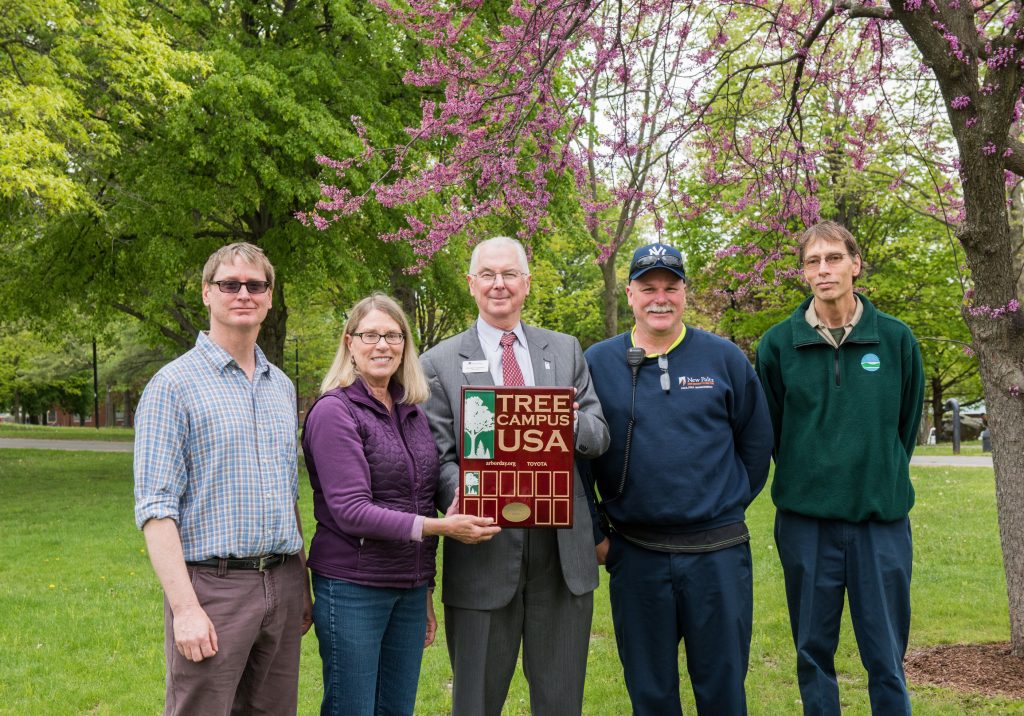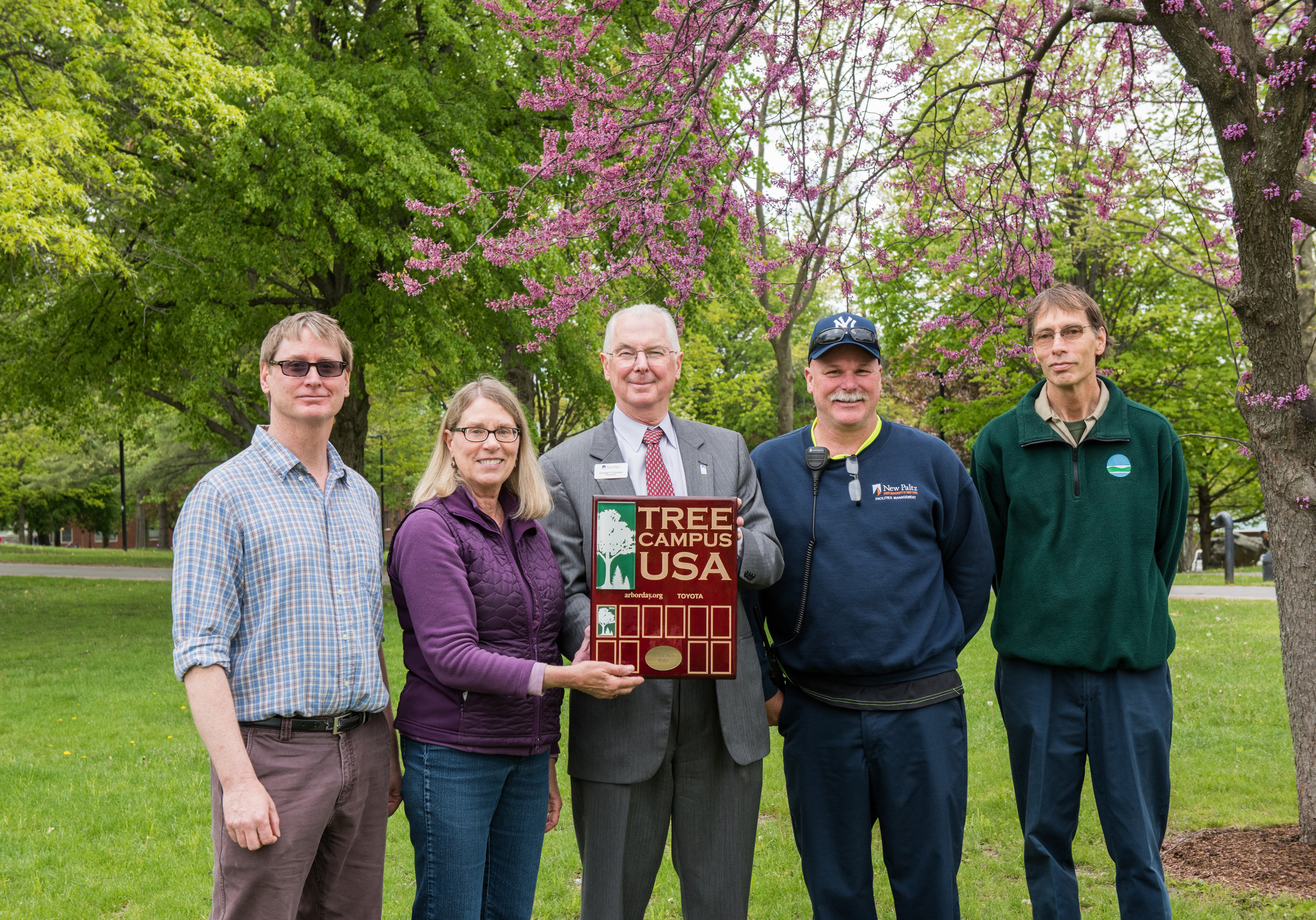SUNY New Paltz earns Tree Campus USA designation
 New Paltz has joined a select group of U.S. colleges and universities that have met campus environment standards established by the Arbor Day Foundation, the nation’s largest nonprofit membership organization dedicated to planting trees.
New Paltz has joined a select group of U.S. colleges and universities that have met campus environment standards established by the Arbor Day Foundation, the nation’s largest nonprofit membership organization dedicated to planting trees.
“Earning Tree Campus USA status demonstrates to the world what those of us who live and work at SUNY New Paltz already know – that we have an extraordinary environment for studying ecology, not only off-campus but on campus as well,” said Eric Keeling, assistant professor of biology.
A small group of students, faculty, staff and community members came together this year to work toward earning Tree Campus USA designation, an honor reserved for schools that meet five requirements:
- Establishment of a Campus Tree Advisory Committee
- Development of a campus tree care plan
- Allocation of annual expenditures to campus tree program
- Arbor Day Observance
- Creation of at least one service learning project.
The effort to create an Advisory Committee was led by Emerita Professor of Biology Carol Rietsma, who enlisted Keeling, Grounds Supervisor Rich Drosdowich, and NYS DEC Senior Forester (and New Paltz alumnus) George Profous ’04 (Elementary Education). A number of students contributed to the effort as well.
Much of their efforts focused on presenting the New Paltz campus as a resource, both to students and faculty interested in studying the flora in our own backyard, and to community members seeking education about Hudson Valley plant life.
“I hope this reminds the broader public that our campus can be a resource – a place where people can come learn about trees and find new ways to appreciate their value to our communities,” Rietsma said.
To that end, the College’s new Campus Tree Advisory Committee has been working with local partners to help the Village and Town of New Paltz create a tree management plan and apply for green infrastructure grants.
“Tree Campus USA designation is in itself just a symbol; however, it is also a recognition of the spirit of innovation at SUNY New Paltz,” Profous said. “The implementation of new technology and science in tree planting and streetscapes in urban settings has lagged behind for decades. May your addition to the Tree Campus community help change that.”
Readers can learn more about trees at SUNY New Paltz by visiting the campus tree database, an invaluable resource that uses GPS and the hard work of biology students and faculty to locate and identify every tree on campus.
More information about the Tree Campus USA program is available online.

